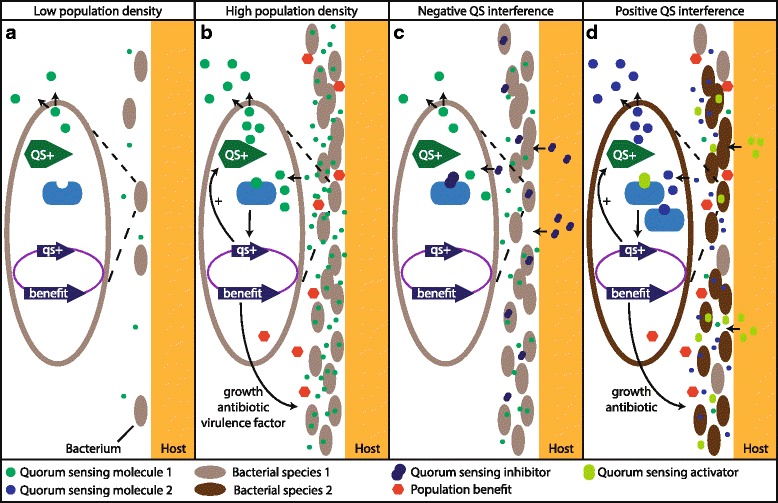Fig. 5.

Quorum sensing and interference. a Bacteria produce quorum-sensing stimulating compounds (QS+), but due to low bacterial density and environmental conditions (e.g., diffusion, advection, degradation) the concentration does not reach levels sufficient to bind to the receptor. b At high population densities, the QS compounds reach sufficient levels to bind to its receptor leading to gene transcription and subsequently (1) increased production of QS+ signaling molecules and (2) population beneficial processes, such as cooperative growth and migration, secretion of antibiotics to reach effective concentrations for competition or in case of pathogens the production of virulence factors. c–d Host organisms have the capacity to interfere with QS, possibly species specific. c By secreting QS inhibiting compounds, bacterial population benefits can be counteracted, thereby reducing bacterial growth and potentially inhibiting pathogen virulence. d Host-induced QS activation in specific bacterial species may provide a growth advantage, selecting for those species. A balance of negative and positive QS interference may allow the host to regulate its associated microbiota. Other than intended bacterial species may, however, cheat and benefit from QS by other species without investing in QS themselves
